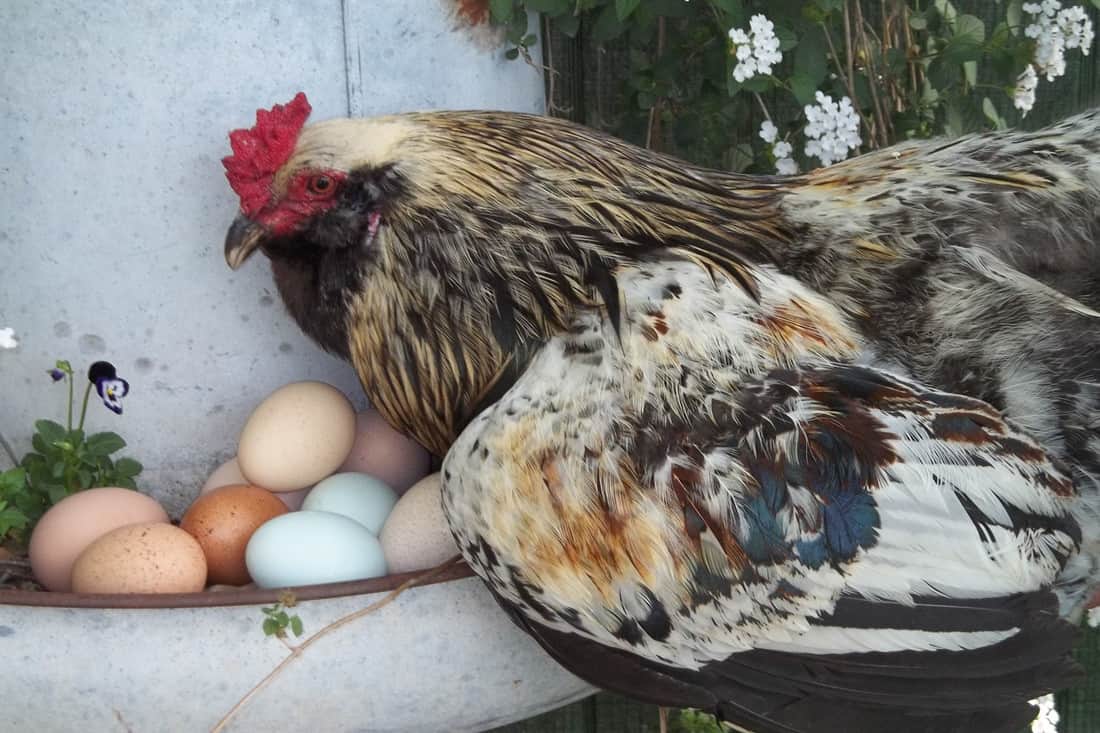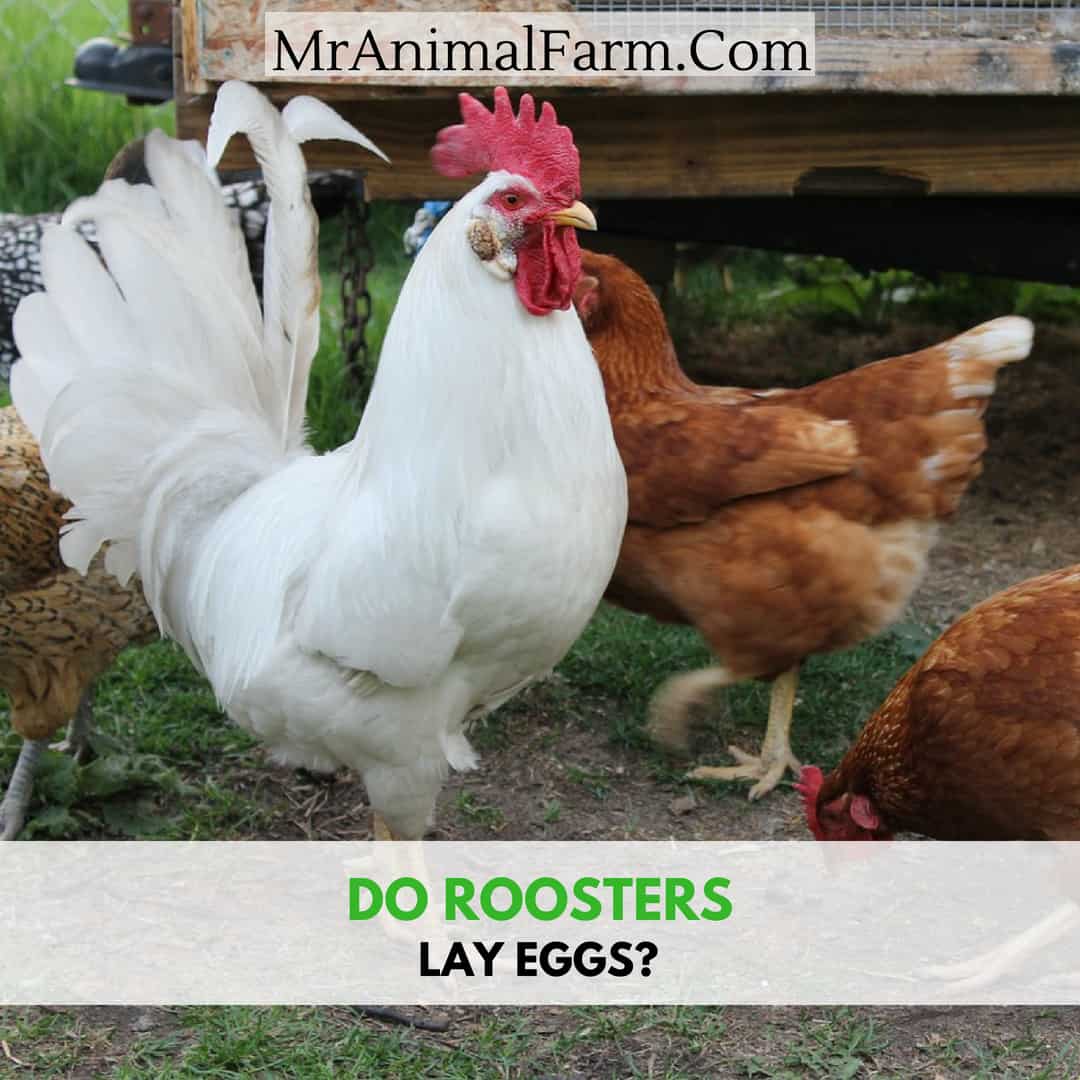When it comes to backyard farming or simply raising chickens, a common question arises: do chickens need roosters to lay eggs? The short answer is no, hens do not require roosters to lay eggs. However, if you're looking for fertilized eggs for hatching, a rooster becomes essential. Understanding the differences between egg-laying and reproduction can help poultry enthusiasts make informed decisions about their flock. This article delves into the science behind chicken reproduction and explores whether roosters play a crucial role in the egg-laying process.
The presence of a rooster affects the type of eggs produced but not the frequency or quantity. Hens naturally lay eggs as part of their reproductive cycle, regardless of a rooster's presence. Roosters are necessary only if you want fertilized eggs that can develop into chicks. For those who raise chickens for eggs, knowing this distinction is key to managing expectations and resources efficiently. Additionally, having a rooster can change flock dynamics, so it's important to weigh the pros and cons before introducing one.
Understanding the role of roosters in egg production can also help clarify misconceptions about chicken behavior and reproduction. While roosters are not required for egg-laying, they contribute to flock stability and protection in some cases. This article will explore the science behind chicken reproduction, the differences between fertilized and unfertilized eggs, and whether roosters are truly necessary for egg production. Let's dive deeper into the topic and uncover the truth about chickens and roosters.
Read also:Comprehensive Guide To Dish Tv Support Phone Number For Seamless Service
What Role Do Roosters Play in Chicken Flocks?
Roosters serve several important roles within a chicken flock, beyond just fertilizing eggs. They act as protectors, ensuring the safety of hens by keeping an eye out for predators. Roosters also establish a pecking order, which helps maintain harmony within the flock. However, their presence can sometimes lead to aggression or stress among hens if not managed properly. Understanding the behavioral dynamics between roosters and hens is crucial for maintaining a balanced and healthy flock environment.
Roosters are also known for their vocalizations, often crowing at dawn to signal the start of a new day. This behavior can be both a benefit and a drawback, depending on where you live. In urban or suburban areas, rooster crowing might not be well-received by neighbors, so it's important to consider local regulations and community expectations before adding a rooster to your flock.
Do Chickens Need Roosters to Lay Eggs?
This is one of the most frequently asked questions among chicken keepers. The answer lies in understanding the biological processes involved in egg-laying. Hens have a natural reproductive cycle that allows them to produce eggs even without a rooster. These eggs, however, will not be fertilized and therefore cannot develop into chicks. If your goal is to raise chicks, a rooster is necessary to fertilize the eggs. On the other hand, if you're focused on egg production for consumption, a rooster is not required.
How Does a Rooster Contribute to Egg Fertilization?
The process of egg fertilization begins when a rooster mates with a hen. During this process, the rooster deposits sperm into the hen's reproductive tract. The sperm travels to the oviduct, where it can fertilize an egg as it is formed. This fertilized egg can then develop into a chick if incubated properly. Without a rooster, the eggs laid by hens will remain unfertilized and cannot result in offspring. This distinction is vital for those who wish to expand their flock through natural reproduction.
What Are the Differences Between Fertilized and Unfertilized Eggs?
Unfertilized eggs, laid by hens without the presence of a rooster, are identical to the eggs you would purchase at a grocery store. They are safe to eat and nutritionally equivalent to fertilized eggs. Fertilized eggs, on the other hand, have the potential to develop into chicks if kept under the right conditions. While some people prefer fertilized eggs for their perceived health benefits, there is no scientific evidence to support this claim. Both types of eggs are nutritious and suitable for consumption.
Do Chickens Need Roosters to Lay Eggs for Consumption?
If your primary purpose for raising chickens is to collect eggs for eating, the answer is clear: no, chickens do not need roosters to lay eggs. Hens will continue to lay eggs as part of their natural reproductive cycle, regardless of whether a rooster is present. In fact, many backyard chicken keepers choose to maintain an all-female flock to avoid the potential complications that can arise from having a rooster, such as aggression or noise.
Read also:Experience The Comfort And Hospitality Of Fairfield Inn Amp Suites By Marriott Dubois
How Often Do Hens Lay Eggs Without a Rooster?
The frequency of egg-laying depends on various factors, including the breed of chicken, age, diet, and environmental conditions. Most hens will lay one egg per day during their peak laying period, which typically occurs between 18 months and 2 years of age. After this point, egg production may decrease gradually. The presence or absence of a rooster does not affect the number of eggs laid, as this process is regulated by the hen's hormones and reproductive system.
What Are the Benefits of Keeping a Rooster?
- Protection from predators
- Establishment of flock hierarchy
- Assistance in mating and fertilization
While roosters are not essential for egg-laying, they offer several advantages to a flock. Their protective instincts can help safeguard hens from potential threats, such as hawks or other predators. Roosters also play a role in maintaining social order within the flock, which can reduce conflicts among hens. However, these benefits must be balanced against potential drawbacks, such as aggression or noise.
What Are the Drawbacks of Keeping a Rooster?
- Potential aggression toward humans or other animals
- Noise from crowing
- Increased resource needs
Roosters can sometimes exhibit aggressive behavior, especially during mating season or when protecting their flock. This aggression can be directed toward humans, other animals, or even hens. Additionally, the noise generated by rooster crowing can be a concern in residential areas. Before deciding to add a rooster to your flock, it's important to weigh these potential drawbacks against the benefits they provide.
Do Chickens Need Roosters to Lay Eggs for Hatching?
If your goal is to hatch chicks, the answer is yes, chickens need roosters to lay eggs that can be fertilized and developed into offspring. Without a rooster, the eggs laid by hens will remain unfertilized and cannot result in chicks. This makes roosters essential for those who wish to expand their flock through natural reproduction. Proper management of a mixed-gender flock is crucial to ensure successful fertilization and hatching.
How Can You Manage a Flock Without a Rooster?
Many backyard chicken keepers choose to maintain an all-female flock to simplify management and avoid potential issues associated with roosters. This approach allows for consistent egg production without the complications of aggression, noise, or fertilization. To ensure the health and well-being of your hens, provide them with a balanced diet, clean living conditions, and regular veterinary care. Monitoring their behavior and egg-laying patterns can help you identify any potential issues early on.
What Should You Consider Before Adding a Rooster?
Before introducing a rooster to your flock, consider factors such as space, resources, and local regulations. Ensure that your coop and run are large enough to accommodate both hens and roosters comfortably. Additionally, evaluate the dietary needs of your flock and make adjustments as necessary to support the rooster's growth and health. Finally, check local laws and community guidelines regarding the keeping of roosters, as some areas may have restrictions on their ownership.
Can You Hatch Eggs Without a Rooster?
No, you cannot hatch eggs without a rooster. Fertilization is a necessary step in the development of viable chicks, and this process requires the presence of a rooster. If you wish to expand your flock without a rooster, consider purchasing fertilized eggs from a reputable breeder or using artificial incubation methods. These alternatives can help you achieve your goals while avoiding the challenges associated with keeping a rooster.
Conclusion: Do Chickens Need Roosters to Lay Eggs?
In summary, chickens do not need roosters to lay eggs for consumption. Hens will continue to produce eggs as part of their natural reproductive cycle, regardless of whether a rooster is present. However, if your goal is to hatch chicks, a rooster becomes essential for fertilizing the eggs. Understanding the role of roosters in chicken reproduction can help you make informed decisions about managing your flock and achieving your poultry-raising objectives.
Table of Contents
- What Role Do Roosters Play in Chicken Flocks?
- Do Chickens Need Roosters to Lay Eggs?
- How Does a Rooster Contribute to Egg Fertilization?
- What Are the Differences Between Fertilized and Unfertilized Eggs?
- Do Chickens Need Roosters to Lay Eggs for Consumption?
- How Often Do Hens Lay Eggs Without a Rooster?
- What Are the Benefits of Keeping a Rooster?
- What Are the Drawbacks of Keeping a Rooster?
- Do Chickens Need Roosters to Lay Eggs for Hatching?
- How Can You Manage a Flock Without a Rooster?


